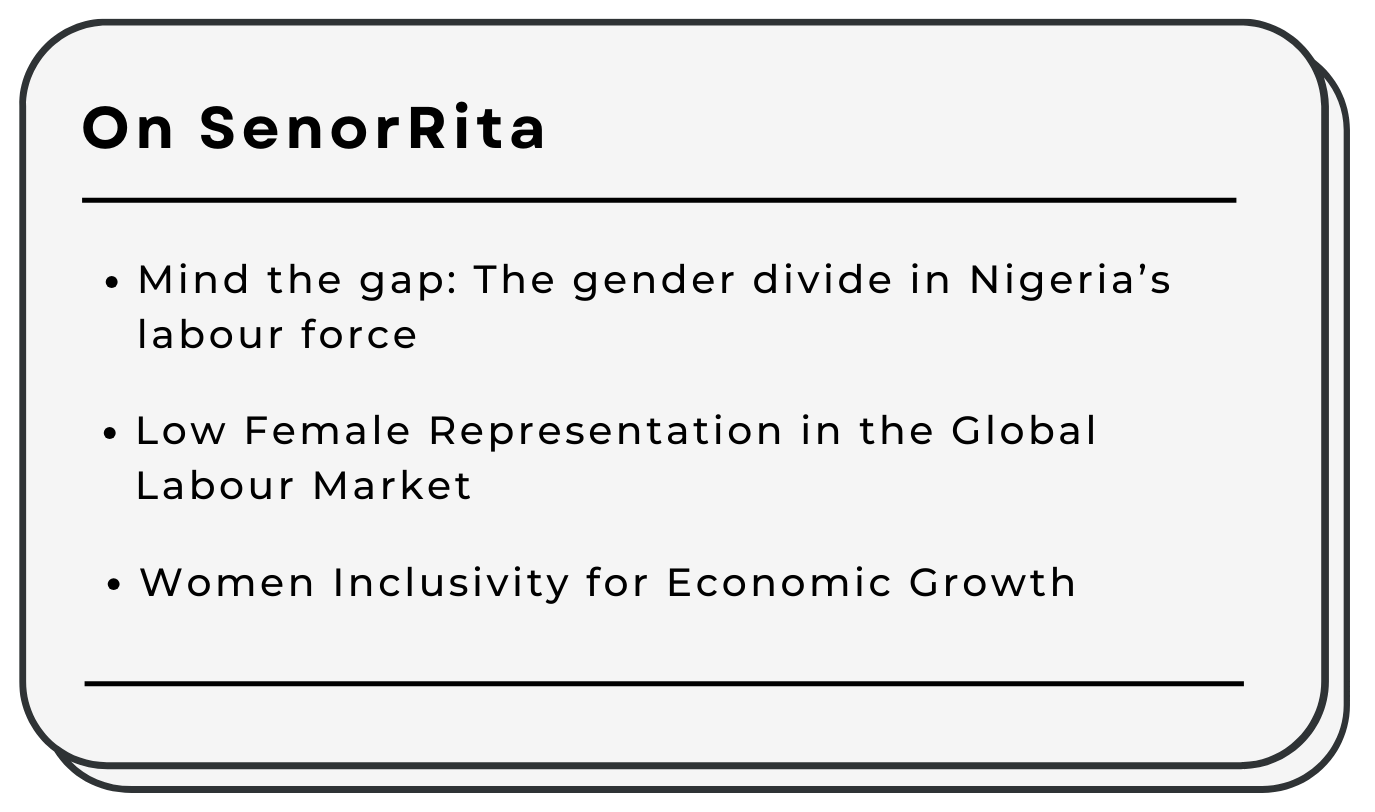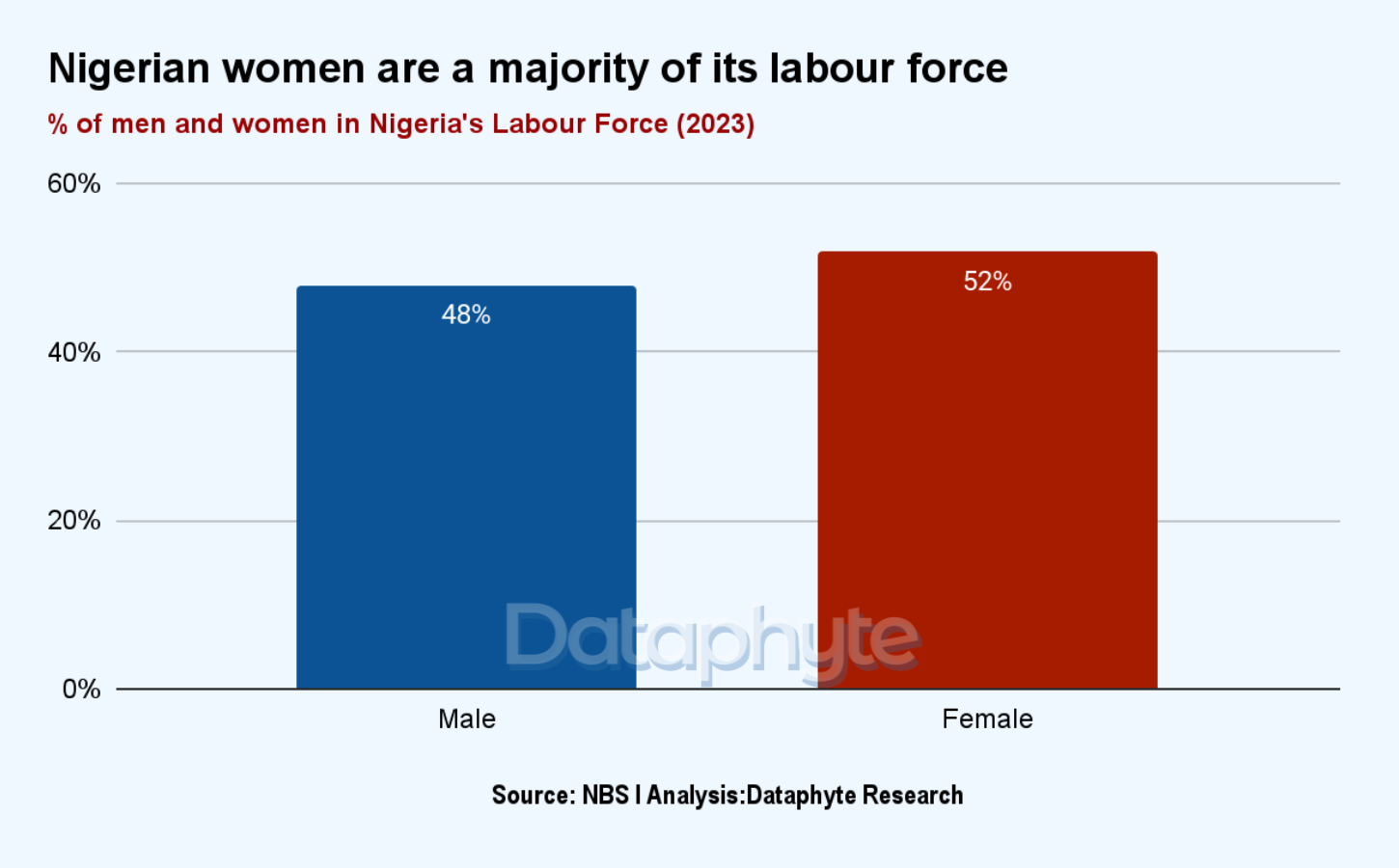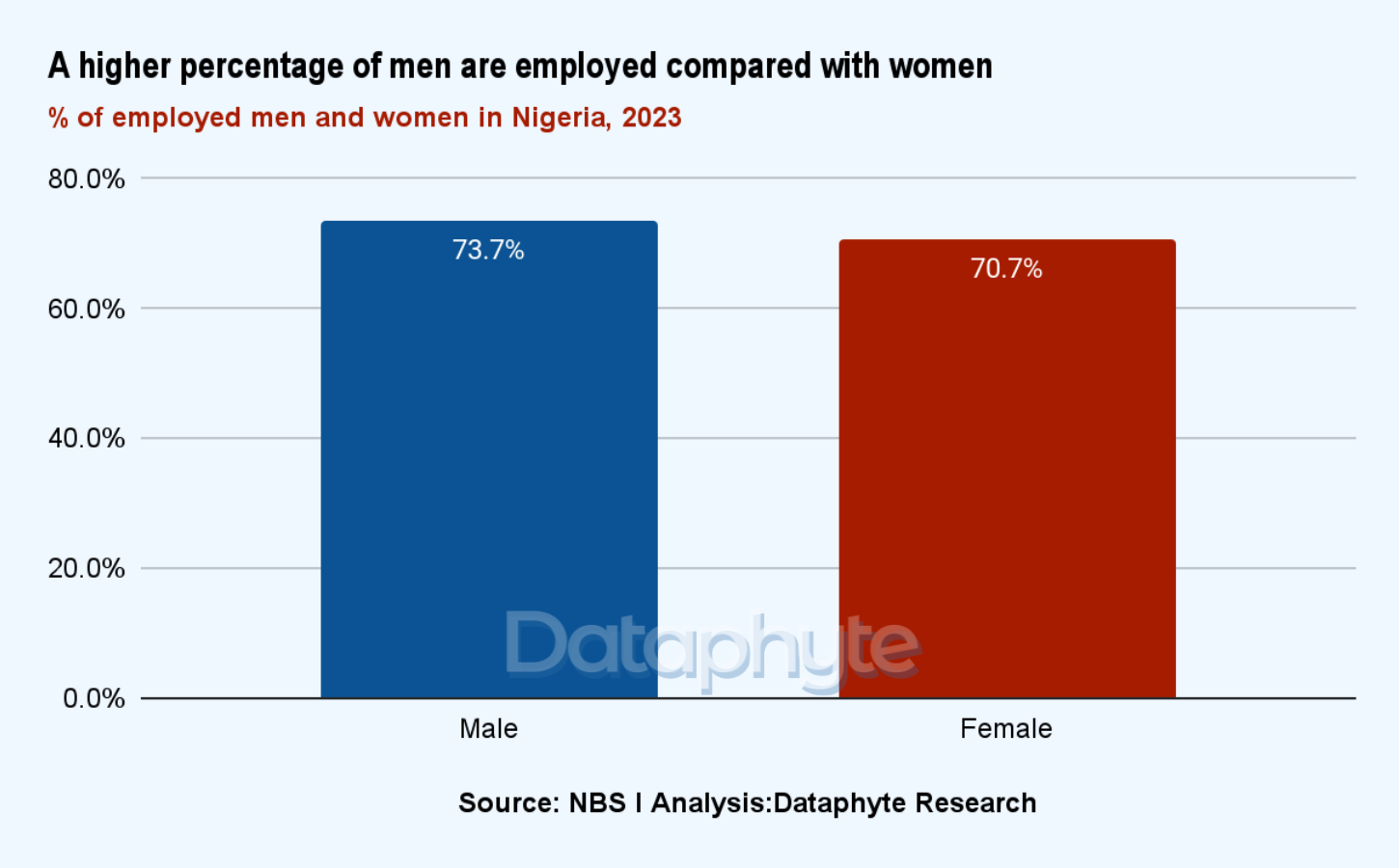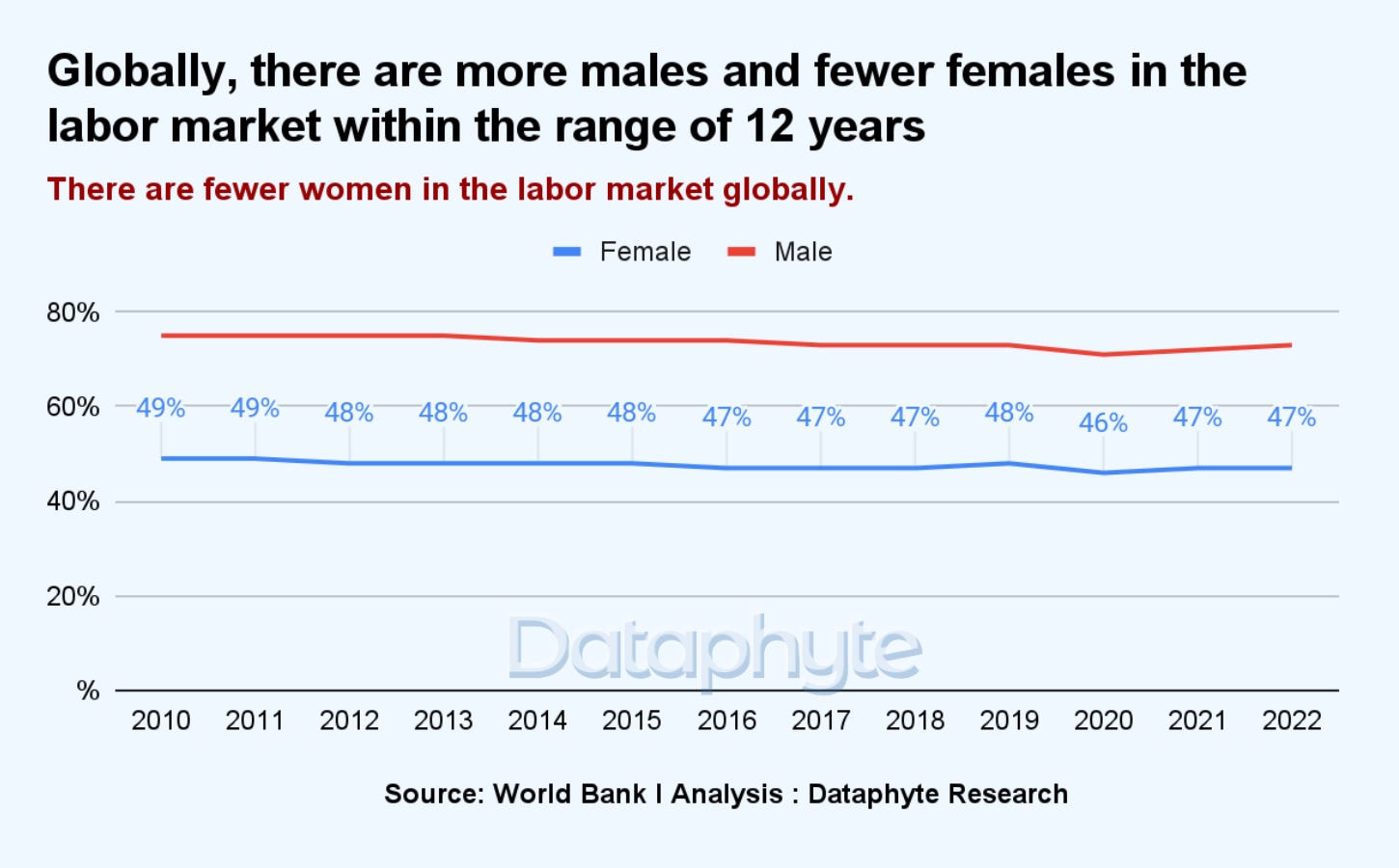The 2023 Nigerian labour force survey shows there are more working-age women who are eligible to participate in the Nigeria Labour force.
The survey, conducted by the National Bureau of Statistics, revealed that despite the increase in the number of working-age women in the labour force, they have less representation in the labour market.
An employed person is any person who engages in an activity for pay or profit.
However, the working-age of people involved in the workspace has increased from 15-64 years to 15 and above, having more females in the labour force with low representation in the labour market.
In 2023, the Nigerian labour force reached over 88.9 million. The total employed female population in Nigeria is estimated at almost 45.3 million, the male employees are projected to be slightly lower, at around 43.5 million.
There are 52% of women between the age of 15 and above who make up Nigeria’s labour force, compared with 48% of men.
The total percentage of employed people in the Nigerian Labour market is 72.2%. Breaking this figure down, we find that 73.7% of the male labour force are currently employed while 70.7% of the female labour force are employed.
This shows that on average in every Nigerian work space, there are more employed male workers than female workers.
Low Female Representation in the Global Labour Market
World Bank data shows that for the past 12 years, women recruitment has lagged behind in the labour force recruitment phases. More men have been actively recruited into the Labour force.
Despite the United Nations’ efforts to promote inclusivity in workspaces, the women population in the work spaces has not increased globally.
The economic cost of lower labour force participation for women is significant. An IMF study from 2018 found that closing the gender gap in the labour force could increase GDP by an average of 35%, with increases from 7% to 60% depending on the country.
Women Inclusivity for Economic Growth
Women’s economic empowerment means ensuring women can equally participate in and benefit from decent work and social protection. It is essential to achieving women’s rights and gender equality.
The United Nations advocates for the inclusion of women in the labour force to boost economic activities. Many times, there are many women qualified to join the labour force but their representation is less.
It says, ‘‘when more women work, economies grow. Women’s economic empowerment increases economic diversification and income equality for shared prosperity.’’
Globally, employment is a central element in the 2030 Agenda for Sustainable Development which emphasises promoting productive employment and decent work for all (Goal 8).
Removing all the obstacles to greater female participation in Nigeria’s workforce, be they societal or organisational, is imperative for a more equal and prosperous nation.
Thanks for reading this edition of SenorRita. It was written by Kafilat Taiwo and edited by Joachim MacEbong.







